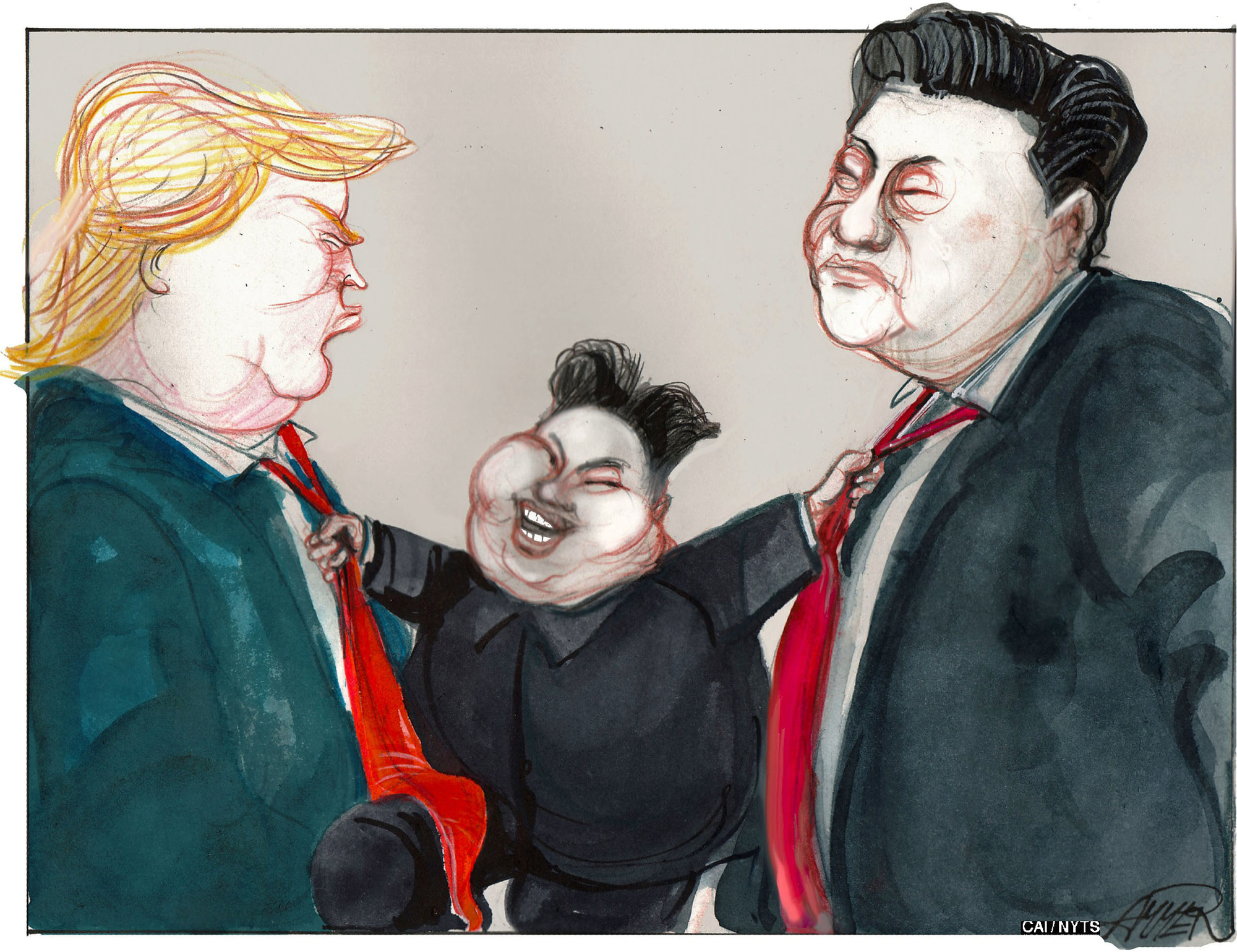The emerging Sino-U.S. coalition, albeit ad hoc and tactical at best, seems to be working in keeping the tense situation on the Korean Peninsula from further escalating, at least for now. Kim Jong Un let North Korea's two important anniversaries in April pass without conducting yet another underground nuclear test or test-firing an intercontinental ballistic missile that Pyongyang claims is in the final stage of development.
The coalition was formed at the first summit meeting between President Donald Trump and his Chinese counterpart Xi Jinping held in Mar-a-Lago, Florida, on April 6, during which the two leaders apparently shared the recognition that Kim's dangerous pursuit of nuclear weapons must be stopped. A nuclear North Korea armed with ICBM technologies capable of hitting the U.S. mainland is a matter of national security for Washington. The emergence of a defiant nuclear neighbor is also a threat to China, which has consistently supported denuclearization of the Korean Peninsula. In short, Trump and Xi saw a conversion of their security interests to form a coalition and work together to prevent North Korea's nuclear weapons development program.
At their meeting, Trump asked the Chinese president to do more to rein in North Korea, adding that the U.S. was prepared to act alone if China did not. Trump made the request while disclosing to his guest that he had just ordered an attack against a Syrian air base with 59 Tomahawk cruise missiles in response to the alleged use of chemical weapons by the Syrian authorities two days earlier. In response, Xi agreed but at the same time, stressed the need to resolve the North Korean issue through dialogue and negotiations, not by force as Trump had indicated.



